PHOTOS: Cairo shoemaker
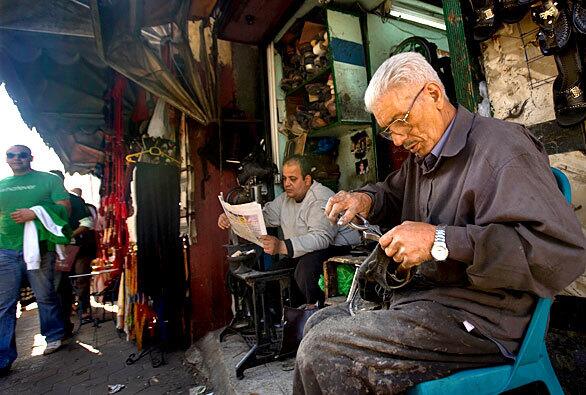
Fouad Bekheet, 65, sitting on the right, repairs shoes at a shop in Cairo. He has been hand-crafting footware and making repairs since he was 14 years old. When he first started in the trade, he made all repairs by hand; now he sometimes uses a sewing machine. (Holly Pickett / For The Times)
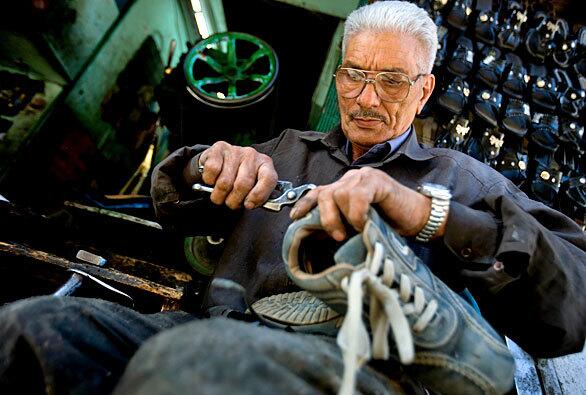
Cairo shoemaker Fouad Bekheet removes worn soles from a customer’s shoes. The Armenians taught me to repair shoes, to mend them by hand. Its very meticulous, he says. (Holly Pickett / For The Times)
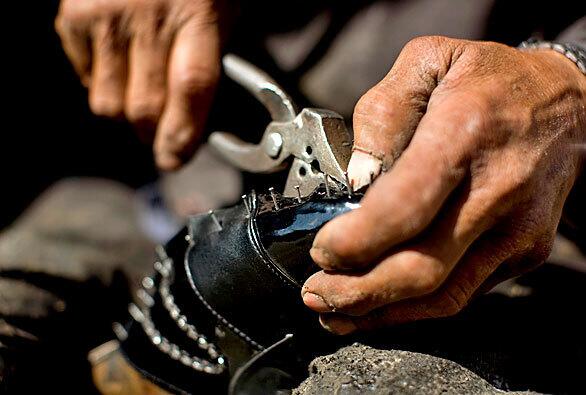
Fouad Bekheet stretches material over a wooden foot mold and holds it in place with small nails while making women’s shoes. (Holly Pickett / For The Times)
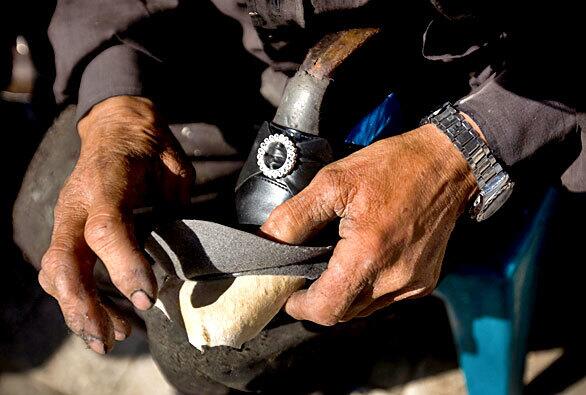
Cairo shoemaker Fouad Bekheet has used the same tools for 55 years. He speaks mournfully of the days, sometime in the mid-1970s, when machines invaded the trade. (Holly Pickett / For The Times)
Advertisement
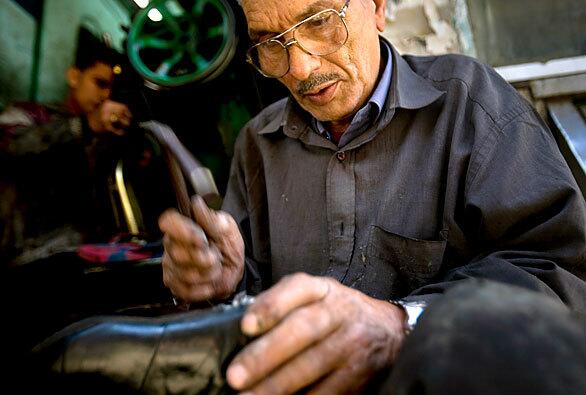
Fouad Bekheet hammers nails into the heel of a woman’s boot. (Holly Pickett / For The Times)
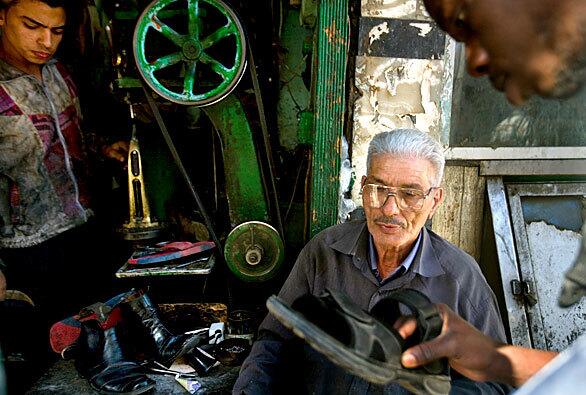
Fouad Bekheet, seated, looks at a pair of sandals a customer wants repaired at the shoe shop in Cairo. , (Holly Pickett / For The Times)
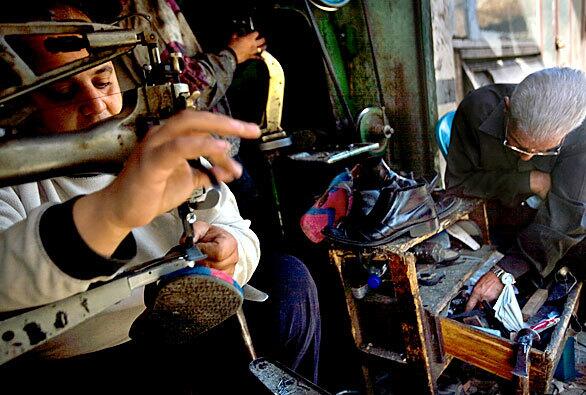
Hani Karam, left, uses a sewing machine to repair a sandal while Fouad Bekheet, right, looks for a hand tool at the tiny shoe shop in Cairo. (Holly Pickett / For The Times)
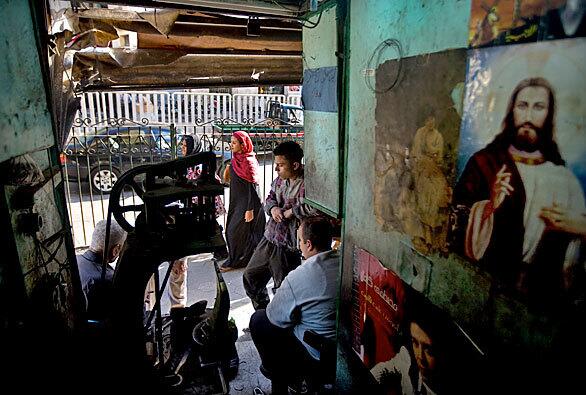
Hani Karam and his employees wait for customers at Karam’s shoe shop in Cairo. The closet-sized shoe repair shop was founded nearly 60 years ago by his grandfather. Id say 80% of our customers want shoes fixed that should have been thrown away long ago, Karam says. They come, take their shoes off and stand in their socks and wait. They have to. They only own one pair of shoes. It used to be people would bring shoes here and forget about them. Every month wed throw away bags of shoes. No more. People are too poor these days to forget about a pair of worn-out shoes. (Holly Pickett / For The Times)







